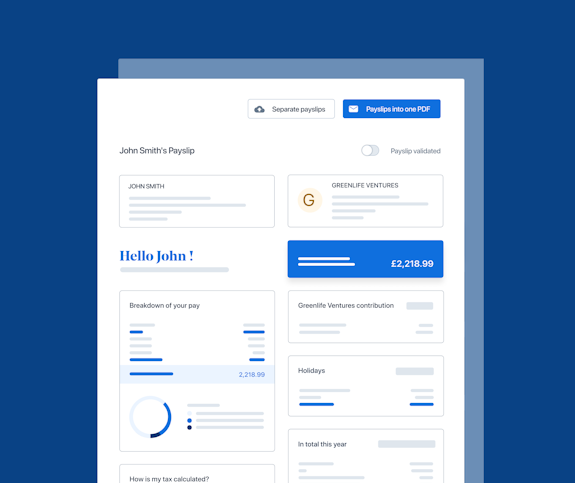- Blog
- |People management
- >Employee wellbeing
- >Recruitment
Recruitment during and after the pandemic


Recruitment plans put on pause
Recruitment is a big part of any business. Companies are always trying to implement rigorous processes that ensure they get the right people through the door and provide them with opportunities to achieve long-term success.
Doing this is not easy and can be extremely time-consuming. This was certainly reflected in our data; 21% of HR managers said they spent most of their time on recruitment and the same number considered it to be one of the most critical issues in 2020.
However, the coronavirus pandemic caused many recruitment plans to be paused. Instead, contingency measures such as furloughing and, in the more unfortunate cases, redundancies became the norm for HR teams.
In the UK, 10 million employees were placed on furlough through the Coronavirus Job Retention Scheme.
Furthermore, data released in August by the job search engine Adzuna revealed that job vacancies were down 59% compared to the same period in 2019.
Recruitment has not been a priority for HR departments. However, despite these doomsday data, some companies have continued to recruit—although they have had to adapt procedures to match the changes in working habits.
Post-COVID – adapting and modernising procedures
"UK unemployment figures see biggest hike since 2009." – Evening Standard
"UK sheds nearly 750,000 jobs during the coronavirus crisis." – Financial Times
"COVID hits young people's jobs twice as hard." – The Independent
We've all seen the headlines about job losses and unemployment rates since the virus first reared its ugly head. With no end in sight, experts are predicting that things will get significantly worse before they get better.
This is despite the introduction of schemes designed to keep people employed and preserve jobs, such as the Coronavirus Job Retention Scheme (CJRS) and the Self Employment Income Support Scheme (SEISS).
Ben Chatfield, the founder and CEO of the recruitment platform Tempo, believes that the coronavirus crisis has the potential to completely change the ways that companies recruit new talent.
"While the long-term effects on recruitment remain to be seen at this stage, companies have adapted their recruitment strategy to meet the conditions imposed by remote work."
Ben Chatfield, CEO at Tempo
Interviews
With face-to-face interviews impossible during lockdown and strongly discouraged since, companies have had to resort to remote interviews, previously reserved for more junior roles, to recruit for more strategic and key positions.
Inevitably, remote interviews mean that nonverbal cues, an important part of most interviews, are missed. This is a significant issue, as is demonstrated through a study by Albert Mehrabian which states that 55% of all communication is done through body language.
Companies have had to change their interview processes in response. For example, increasing the number of interviews per candidate or allowing a greater number of existing employees to vet candidates have been just some of the processes implemented.
"Without being able to perform face-to-face interviews, many companies are involving more people in the interview process."
Ben Chatfield, CEO at Tempo
Back to old recruiting habits
Recruitment procedures have lagged behind other initiatives for several decades, leading to years of stagnation.
According to Chatfield, current conditions should encourage companies to realign and modernise their procedures. However, many have been reverting to old habits.
The reason is simple. With so many unemployed or facing uncertain futures, organisations are receiving hundreds, if not thousands, of applications for posts. Consequently, they see this as an excuse not to leverage technology or reevaluate processes.
"There is a significant opportunity for change that is not currently being realised. Instead, we've actually seen regression."
Ben Chatfield, CEO at Tempo
Nevertheless, there are companies that are taking advantage of this opportunity and embracing change. Through better, fairer and more engaging procedures, companies are able to recruit top talent that can operate successfully in this rapidly evolving market, and it is these companies, in Chatfield's opinion, that will benefit in the long term.
Onboarding
Despite the high number of job losses, people have changed roles and begun new careers during the last six months. Starting a new job can be stressful and challenging at the best of times. Still, during a worldwide pandemic, where the vast majority are having to work remotely, unforeseen challenges have arisen.
Companies have not only had to deal with the logistical challenges of setting someone up at a distance but have also had to build more structured onboarding programmes.
"We will see a sharp rise in the amount of money companies will spend on onboarding. With people working outside of the office, there is pressure on organisations to ensure that their new starters receive the best possible experience when joining a company."
Ben Chatfield, CEO at Tempo
Talent pool expansion
One of the more far-reaching consequences of coronavirus has been the geographic dispersal of teams and organisations. Working remotely means that employees don't have to be in the same city or even in the same country as their office.
Some large companies, including Amazon, Twitter and Facebook, have chosen to implement full-scale remote policies and have removed the need for any office at all. This move has hugely expanded their potential talent pool.
For example, someone applying for a job at one of those companies no longer has to commute to an office, meaning that they can be based anywhere.
According to Chatfield, this policy is not being widely implemented by smaller companies.
Despite empty office space being seen as a sunk cost at the moment, the hope persists that the conditions that existed before coronavirus will one day return.
"The observation made so far is that companies are not straying far from the idea of maintaining recruitment close to their bases as many hope that the conditions that existed prior to the pandemic will exist again."
Ben Chatfield, CEO at Tempo
Recruitment in the future
Despite the observable changes in the ways that companies have operated since the March lockdown, we are still only six months into the pandemic at the time of writing, and it is difficult to measure the long-term effects of coronavirus on the ways that organisations recruit staff.
Coronavirus has the potential to trigger a huge shuffling in the global workforce and with many companies—and even entire industries—collapsing, there could feasibly be a situation where millions of people will be left unemployed with far fewer career prospects.
With the emphasis on reskilling and upskilling workers, we could find that the traditional fundamentals of recruitment, e.g. experience and education, are less valid for employment.
Instead, success will rely heavily on the aptitude and attitude of those out of work, their eagerness to adapt, and the willingness of organisations to develop procedures and processes that meet the demands of the post-pandemic climate.


A UK 4-Day Working Week - Thoughts On Labour’s Plan

Running payroll - A Guide For New Businesses

The Alabaster Ruling & Maternity Pay - A Guide For Employers

The End Of Zero Hours Contracts? Implications For Businesses

What is the HM Revenue and Customs Starter Checklist

